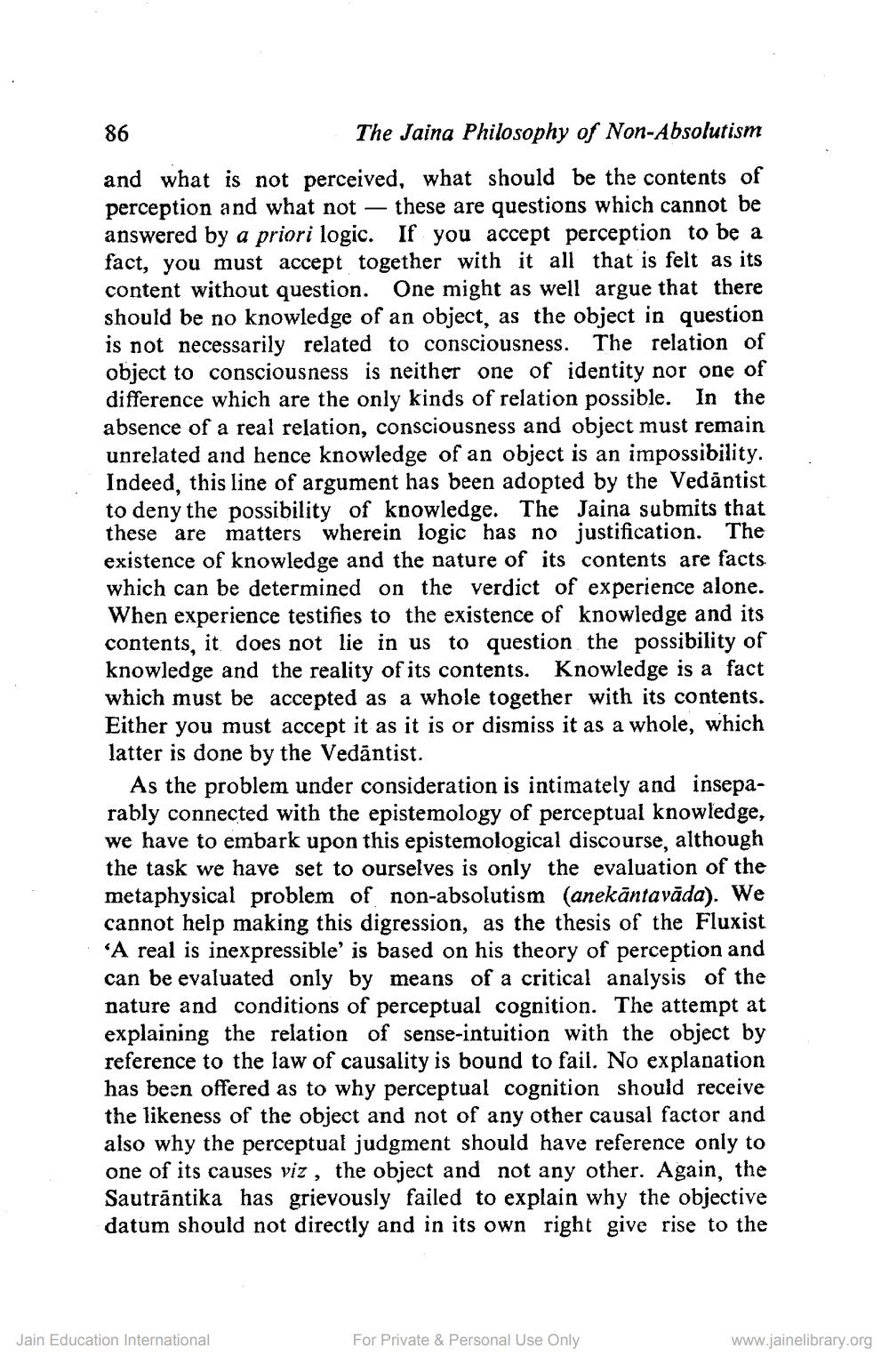________________
86
The Jaina Philosophy of Non-Absolutism
and what is not perceived, what should be the contents of perception and what not these are questions which cannot be answered by a priori logic. If you accept perception to be a fact, you must accept together with it all that is felt as its content without question. One might as well argue that there should be no knowledge of an object, as the object in question is not necessarily related to consciousness. The relation of object to consciousness is neither one of identity nor one of difference which are the only kinds of relation possible. In the absence of a real relation, consciousness and object must remain unrelated and hence knowledge of an object is an impossibility. Indeed, this line of argument has been adopted by the Vedantist to deny the possibility of knowledge. The Jaina submits that these are matters wherein logic has no justification. The existence of knowledge and the nature of its contents are facts which can be determined on the verdict of experience alone. When experience testifies to the existence of knowledge and its contents, it does not lie in us to question the possibility of knowledge and the reality of its contents. Knowledge is a fact which must be accepted as a whole together with its contents. Either you must accept it as it is or dismiss it as a whole, which latter is done by the Vedantist.
—
As the problem under consideration is intimately and inseparably connected with the epistemology of perceptual knowledge, we have to embark upon this epistemological discourse, although the task we have set to ourselves is only the evaluation of the metaphysical problem of non-absolutism (anekāntavāda). We cannot help making this digression, as the thesis of the Fluxist 'A real is inexpressible' is based on his theory of perception and can be evaluated only by means of a critical analysis of the nature and conditions of perceptual cognition. The attempt at explaining the relation of sense-intuition with the object by reference to the law of causality is bound to fail. No explanation has been offered as to why perceptual cognition should receive the likeness of the object and not of any other causal factor and also why the perceptual judgment should have reference only to one of its causes viz, the object and not any other. Again, the Sautrāntika has grievously failed to explain why the objective datum should not directly and in its own right give rise to the
Jain Education International
For Private & Personal Use Only
www.jainelibrary.org




